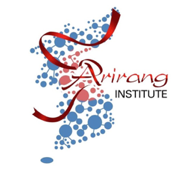홍성국 "코로나19 때문에 중국인 입국금지?..한국 경제 붕괴된다”
Hong: “You want to ban Chinese entry to South Korea because of the Coronavirus?…The South Korean economy would collapse”
Source: EDaily
[이데일리 박한나 기자] 더불어민주당 17번째 영입인재인 홍성국 혜안리서치 대표(전 미래에셋대우 사장)는 ‘코로나19가 지나간 이후를 생각하면 중국인을 막아서는 안 된다’는 견해를 밝혔다. 29일 오후 홍 대표는 ‘코로나19로 중국인 입국 금지하라는 분들께’라는 제목의 글을 자신의 페이스북에 올렸다. 홍 대표는 “심정적으로 중국인을 입국금지하면 코로나19 확산이 저지될 듯하기는 하다. 그러나 중국은 과거의 중국이 아니다. 막는다고 해결되지 않는다”고 입을 뗐다. 그는 “4대 강국 틈에 끼어 있는 수출중심 국가라는 숙명적 한계를 받아들이자”면서 “수출 측면에서 중국과의 관계를 정리해봤다”며 글을 이어갔다. 홍 대표는 세계 경제는 완전히 연결돼 있으며 특히 한국 경제는 중국에 의존하고 있는 실정이라고 설명했다. 그는 “한국은 원자재 수입, 가공, 혹은 중간재를 만들어, 중국, 아세안 등에 수출하고, 조립된 제품이 선진국으로 향하는 국제 무역의 중간 지점에 있다. 따라서 비중이 가장 높은 중국과 관계가 틀어지면 전체 무역 구조가 붕괴된다”고 지적했다. 또 “우리 풍요의 상당 부분은 중국에 의존하고 있다”며 중국과의 관계가 경제에 미치는 영향을 설명했다. 홍 대표는 “한국을 지탱하는 무역수지(+389억$)는 2019년 중국으로부터 약 290억$, 아세안에서 약 389억$를 벌어들여 원자재도 사고 해외여행도 즐기고 있다”고 했다. 이어 “한국의 2019년 기준 대중국 수출은 25%(1,362억$)를 차지한다. 중국경제 영향력이 강한 홍콩(5.8%), 대만(2.9%)으로의 수출까지 포함하면 33.8%나 된다. 추가로 중국과 경제적 관계가 높아지고 있는 아세안에도 한국은 17.6%나 수출하고 있다. 세계 최대 자원소비국인 중국은 중동, 호주, 브라질 등에도 영향력을 행사한다. 이 지역에 한국의 수출 비중은 꽤 수출 비중이 높다”고 밝혔다. 그러면서 “당장 급하다고 수출의 뿌리를 자르겠다고?”라고 반문했다.
Hong Sung-kuk, former head of Mirae Asset Daewoo, said, "Considering the aftermath of the Coronavirus, South Korea should not stop Chinese to South Korea."
On February 29th, Hong posted a message on his Facebook page titled, "To those who ask you to ban Chinese entry in order to stop the spread of the Coronavirus.” He continued, “If the Chinese are banned from entering South Korea, the spread of the Coronavirus will likely be blocked. But China is not the China of the past. Blocking won't solve it. Let's accept the fate of being an export-oriented country among the four major powers. We have sorted out our relationship with China in terms of exports. The global economy is completely connected and in particular, the South Korean economy is dependent on China. South Korea is in the middle of international trade where raw material imports, processing or intermediate goods are made, exported to China, ASEAN and assembled products are directed to advanced countries. Therefore, if relations with China, which has the highest proportion, go sour, the entire trade structure collapses.”
He also explained the impact of relations with China on the economy, saying, “much of our affluence depends on China. The trade balance that supports Korea, or +38.9 billion dollars, earned about $29 billion from China in 2019 and $38.9 billion from ASEAN, buying raw materials and enjoying overseas trips,” Hong said. He added, "As of 2019, Korea's exports to China account for 25 percent, or $136.2 billion. Including exports to Hong Kong (5.8 percent) and Taiwan (2.9 percent), which have a strong influence on the South Korean economy, 33.8 percent of the total is included. In addition, South Korea also exports 17.6 percent to ASEAN, which is seeing its economic relations with China rise. China, the world's largest consumer of resources, also wields influence in the Middle East, Australia, and Brazil. The proportion of South Korean exports to the region is quite high. You're in a hurry, and you're going to cut the roots of exports?”
Source: EDaily
또 한국이 중국에 수출하는 품목은 반도체, 석유화학, 기계, 디스플레이 등 주요 대기업이 생산하는 제품으로, 중국을 때리는 것이 한국 대기업을 위한 일이 아니라고 강조했다. 중국에서 수입하는 품목 중 원자재(278억$), 소비재(63억$) 등은 내수와 중소기업에게 가장 중요한 물품이기에 중국산 원자재를 사용하는 중소기업과 자영업에도 타격이 오게 된다고 지적했다. 홍 대표는 “세계경제의 17%인 중국의 1분기 성장률이 1.5%p 정도 하강할 경우 한국은 0.2%p~0.3%p 정도 성장률 하향이 불가피하다고 전망도 있다.( Bloomberg Interlligence)”면서 “추경의 경기부양 효과보다 중국경제가 더 큰 영향을 준다”고 했다. 끝으로 그는 “코로나19 이후까지를 생각해보면 힘들더라도 한국은 개방성을 유지하는 것이 좋을 듯하다. 해외 다른 국가가 한국인 입국 금지하는 서러움을 조금 참는다면 결과는 더 좋을 듯. ‘양적으로 한국은 선진국’이다. 이번에 확실하게 ‘질적 선진국’으로 가면 좋다”고 덧붙였다. 홍 대표는 이달 민주당의 초대 경제대변인직으로 정계에 입문했다. 그는 대우증권 리서치센터 센터장, KDB대우증권 대표이사 사장을 거쳐 미래에셋대우 대표이사 사장까지 30년간 대우증권에 몸담았던 금융인이다. 공채 출신으로 사장까지 올라 ‘증권가 샐러리맨의 신화’로 불리는 인물이다.
He also stressed that South Korea's exports to China are products produced by major South Korean conglomerates such as semiconductors, petrochemicals, machinery, and displays and that hitting China is not for South Korean conglomerates. Among the items imported from China, raw materials (27.8 billion dollars) and consumer goods (6.3 billion dollars) are the most important items for domestic consumption and small and medium-sized enterprises, which will deal a blow to small and medium-sized enterprises that use Chinese raw materials. "Some predict that if China's first-quarter growth rate, or 17 percent of the global economy, falls by 1.5 percent, it will be inevitable that South Korea’s growth rate will become 0.2-0.3 percent," Hong said. "The Chinese economy has a greater impact than the economic stimulus effect of the extra budget." Finally, he said, "Thinking about the post-Coronavirus period, South Korea should maintain its openness, even if it may be difficult. The result would be even better if other countries overseas stopped banning South Koreans from entering the country. “Quantitatively, South Korea is an advanced country. It's good to definitely become a ‘quality advanced country‘ at this time," he added. Hong entered politics this month as the MDP's first economic spokesman. He is a financier who worked for Daewoo Securities for 30 years, including the head of the research center at Daewoo Securities, CEO of KDB Daewoo Securities, and CEO of Mirae Asset Daewoo. He is a man who is called "The Mythology of a Stock Exchange Salaryman" as he is a former public servant and has even become a president.
박한나 (hnpk@edaily.co.kr)
Source: http://news.naver.com/main/read.nhn?mode=LSD&mid=sec&sid1=001&oid=018&aid=0004586800



